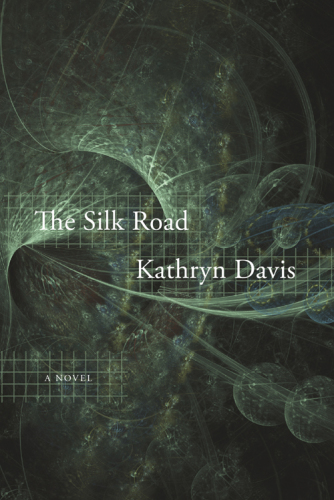
The Silk Road
A Novel
کتاب های مرتبط
- اطلاعات
- نقد و بررسی
- دیدگاه کاربران
نقد و بررسی

December 15, 2018
With a scope no smaller than human existence and no greater than the life span of a flea, Davis' (Duplex, 2013, etc.) eighth novel navigates the territory of history, faith, family, and mortality on the backs of a caravan of cosmic siblings.The Astronomer, the Archivist, the Botanist, the Keeper, the Topologist, the Geographer, the Iceman, and the Cook are the archetypical siblings of this haunting novel, which opens in a yoga class held in the heart of a labyrinth deep below an icy settlement at the literal end of the world. Led by the enigmatic Jee Moon, the group is meditating in corpse pose at the end of a strenuous practice. When one of them fails to arise, the remaining characters are thrust on a journey of memory through which they carry their shared childhood "like a wagon or a bindle or a hump." It is from this slender thread that all resemblance to traditional narrative is woven. In keeping with Davis' earlier novels--which explore interstices, numinous metamorphosis, and the stretching, twisting, crumpling, bending space between being and nonbeing--her latest effort takes place in a realm of almost pure language. The siblings' childhoods together on Fairmount Avenue with their great and terrible Mother, their unknowable Father, and their untrustworthy Nanny occur in simultaneity with their adult lives, their separate journeys to the settlement (a symbol of the Tibetan bardo), and their future journeys toward enlightenment. The reader gathers a sense of their characteristics--the Botanist is humorless and idly flirtatious, the Iceman is bluff and lovable. However, these characteristics are meant less as markers to delineate individual characters than they are facets of the single, complex temperament of a family, or a generation, or an entire species. So, too, is the reader encouraged to relax their expectation of the book as a chronology and instead approach Davis' singular object as a limbo of the now in which all gestures carry equal weight, all characters are interchangeable, all perspectives are "we." The challenges of this kind of approach are formidable, but the tenacity of Davis' language, her spellbinding images and spellbound objects, the fragile beauty of the worlds she creates in the moment of their destruction reward an open-minded reader's labors.A book that stuns, almost literally, with its force and its humility. A tender book. A savage book. A once-in-a-lifetime story.
COPYRIGHT(2018) Kirkus Reviews, ALL RIGHTS RESERVED.

January 1, 2019
We were in the labyrinth. So begins the latest from Davis (Duplex, 2013), a master of mind-whirling, arabesque fiction. This puzzle of pieces of time past, present, and future is an alternately funny and wistful tale of excursions across forbidding, pandemic-afflicted landscapes. The characters are identified as the Cook, the Topologist, the Geographer, the Astronomer, the Botanist, the Keeper, the Archivist, and the Iceman, thus creating a science-tilted, twenty-first-century variation on The Canterbury Tales. Some of these pilgrims share a childhood, and their memories spin in contrast to their baffling adventures on rocky, misty paths with mysterious cairns and at a yoga retreat in the settlement, where the permafrost is melting beneath their mats. Elsewhere trees burst into flames in the extreme heat, a dog-headed beast roams, and people shape-shift. All is liminal?at once corporeal and ephemeral, real and imaginary, betwixt and between life and death, and now and then on a convulsing planet. Davis has created a spooky, slippery, provocative, and elegiac fable in which amusingly fractious and poignantly imperiled pilgrims press on in a blasted world, destination unknown.(Reprinted with permission of Booklist, copyright 2019, American Library Association.)

























دیدگاه کاربران